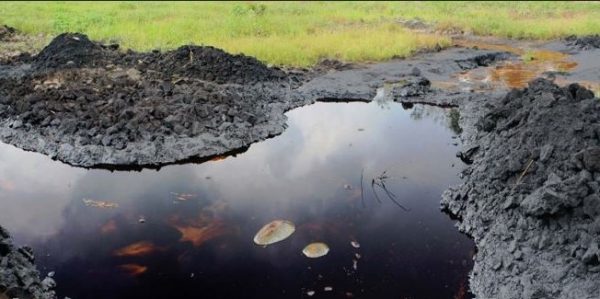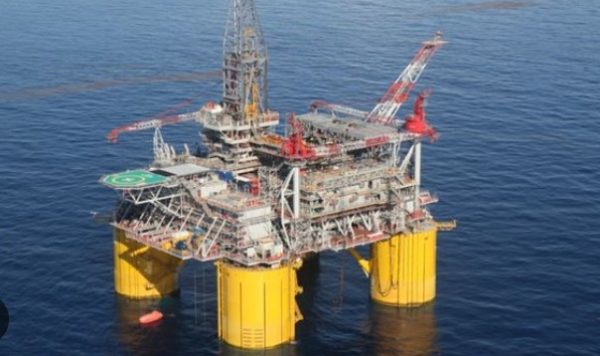In this blog we will be looking at meaning of oil spillage, history of oil spillage in Nigeria, the oil spill Act in Nigeria, Causes of Oil Spillage in the Niger Delta Region of Nigeria.

Oil was first discovered on commercial basis in the Niger Delta region of Nigeria at Oloibiri (the present day Bayelsa state) in the year 1956, more discoveries were made after that of Olobiri and exports began in the year 1958 almost 2 years after discovery at Olobiri. Although the quantities only became significant in the year 1965 and this was because the terminal at Bonny Island in Rivers State and the necessary pipelines to feed the terminal were completed. The Nigerian export was put at an average of 2.5 million barrels each day in the year 2004 and its reserve at 35 billion barrels. Niger Delta is an area with strong cultural diversity.
Read on: ENVIRONMENTAL IMPACT OF OIL SPILLS IN NIGERIA.
The Niger delta occupies a total land mass of 7.5% it has 9 states and 186 local government areas housing at least 25 million people. The Niger Delta to the southern part of Nigeria is 70,000 km2 through which the two rivers; Niger and Benue, these rivers bare into the Atlantic Ocean all it possesses. There are other main rivers; rivers like Benin, Brass, Bonny, Cross, Kwa-ibo, Forcados, Nun and other streams and creeks or brooks which are linked and interwoven by a network of creeks.
What is oil spillage?
Oil spill is a form of pollution described as the release of a liquid petroleum hydrocarbon into the environment, especially marine areas, due to human activities. Oil spills may be due to release of crude oil from tankers, pipelines, railcars, offshore platforms, drilling rigs and wells, as well as spills of refined petroleum products and their byproducts, heavy fuels used by large ships such as bunker fuel, or the spill of any oily refuse or waste oil.
History Of Oil Spillage in Nigeria
Oil was first found in Nigeria in 1956, then a British protectorate, by a joint operation between Royal Dutch Shell and British Petroleum. The two begun productions in 1958, and were soon joined by a host of other foreign oil companies in the 1960s after the country gained independence and, shortly after, fell into civil war. The rapidly expanding oil industry was dogged in controversy from early on, with criticism that its financial proceeds were being exported or lost in corruption rather than used to help the millions living on $1 a day in the Niger delta or reduce its impact on the local environment.
A major 1970 oil spill in Ogoniland in the south-east of Nigeria led to thousands of gallons being spilt on farmland and rivers, ultimately leading to a £26m fine for Shell in Nigerian courts 30 years later. According to the Nigerian government, there were more than 7,000 spills between 1970 and 2000. In 1990, the government announced a new round of oil field licensing, the largest since the 1960s. Non-violent opposition to the oil companies by the Ogoni people in the early 1990s over the contamination of their land and lack of financial benefit from the oil revenues attracted international attention.
Read on: Transfer Of Oil and Gas Assets Is Subject to Minister’s Consent – Nuprc
Then, in 1995, Ogoni author and campaigner Ken Saro-Wiwa was charged with incitement to murder and executed by Nigeria’s military government. In 2009, Shell agreed to pay £9.6m out of court, in a settlement of a legal action which accused it of collaborating in the execution of Saro-Wiwa and eight other tribal leaders. In an escalation of opposition to the environmental degradation and underdevelopment, armed groups began sabotaging pipelines and kidnapping oil company staff from 2006, with a ceasefire called in 2009 by one group, the Movement for the Emancipation of the Niger Delta.
A year later it announced an “all-out oil war” after a crackdown by the Nigerian military. Hundreds of minor court cases are brought each year in Nigeria over oil spills and pollution. Last year, Shell admitted spilling 14,000 tonnes of crude oil in the creeks of the Niger delta in 2009, double the year before and quadruple that of 2007.
The Oil Spill Act in Nigeria
There is an established Agency to be known as the National Oil Spill Detection and Response Agency (in this Act referred to as “the Agency”) with responsibility for preparedness, detection and response to all oil spillages in Nigeria as set out in section 5 of this Act.
- shall be a body corporate with perpetual succession and a common seal; and
- may sue and be sued in its corporate name
Read on: Tinubu seeks swift Senate approval for new NUPRC commissioners.
There is established for the Agency a governing board to be known as the National Oil Spill Response Governing Board (in this Act referred to as “the Governing Board”) which shall be responsible for the formulation of policy for the Agency and act in Governing Board capacity to the Agency in the exercise of any of the functions conferred on the Agency and the Director-General by this Act.
The Governing Board shall consist of-
- A Chairman
- One representative each of the following Federal Ministries not below the rank of Director.
Tenure of Office
- The Chairman and members of the Governing Board shall each hold Office for a period of four years in the first instance and may be re-appointed for a further term of four years and no more.
- A member of the Governing Board may resign his membership by notice in writing addressed to the President through the Minister and that member shall, on the date of the receipt of the notice by the President, cease to be a member.

Functions of the Agency
The Agency shall-
- Be responsible for surveillance and ensure compliance with all existing environmental legislation and the detection of oil spills in the petroleum sector;
- receive reports of oil spillages and co-ordinate oil spill response activities throughout Nigeria;
- co-ordinate the implementation of the Plan as may be formulated, from time to time, by the Federal Government;
- co-ordinate the implementation of the Plan for the removal of hazardous substances as may be issued by the Federal Government;
- perform such other functions as may be required to achieve the aims and objectives of the Agency under this Act or any plan as may be formulated by the Federal Government pursuant to this Act.
Causes of Oil Spillage in Niger Delta Region of Nigeria.
Oil spills into rivers, bays, and the ocean most often are caused by accidents involving tankers, barges, pipelines, refineries, drilling rigs, and storage facilities.
Spills can be caused by:
- people making mistakes or being careless.
- equipment breaking down.
- natural disasters such as hurricanes.
- deliberate acts by terrorists, countries at war, vandals, or illegal dumpers.
Conclusion
Nigeria is one of the biggest oil producers in Africa. Still, the average Nigerian mostly suffer due to oil production. All the benefits from oil come to oil companies and corrupted Nigerian officials! If the situation does not change, Nigerians will lose their oil states.
